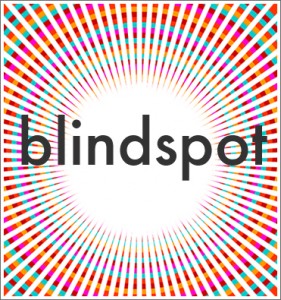Switching Costs – by Noushin Framke
 I first became acquainted with members of Jewish Voice for Peace (JVP) at the 2008 General Assembly of the Presbyterian Church (U.S.A.) in San Jose, California. JVP had a booth near the marketplace and were there to educate Presbyterians about advocating for the human rights of Palestinians. One of the JVP members at the booth was relating the difficulty they run across in the their own work, and used a term I did not know. He said they have “a lot of PEPs in their community” which makes it harder to know who their true supporters are and who they can really count on. “PEPs?” I asked. “What is a PEP?” His answer seemed to open a Pandora’s box.
I first became acquainted with members of Jewish Voice for Peace (JVP) at the 2008 General Assembly of the Presbyterian Church (U.S.A.) in San Jose, California. JVP had a booth near the marketplace and were there to educate Presbyterians about advocating for the human rights of Palestinians. One of the JVP members at the booth was relating the difficulty they run across in the their own work, and used a term I did not know. He said they have “a lot of PEPs in their community” which makes it harder to know who their true supporters are and who they can really count on. “PEPs?” I asked. “What is a PEP?” His answer seemed to open a Pandora’s box.
I learned that PEP stands for “Progressive Except on Palestine” and is a term that the progressive Jewish community is now quite familiar with. It is a label that has come to signify people who are progressive on all the hot-button social issues, except on dealing with the Israel/Palestine conflict. This past September, on the eve of the special election held in New York to replace ultra-progressive congressman Anthony Weiner, the Executive Director of JVP, Rebecca Vilkomerson, wrote an article for the Washington political newspaper, The Hill. The article entitled “Progressive Except on Palestine” pointed to the inconsistency that the PEP position reveals when a politician stands for the full spectrum of progressive causes, but when it comes to the oppression of Palestinians, there is a line that is drawn and will not be crossed.
Traditionally and historically, American Jews have been on the forefront of liberal causes and have pushed the envelope on the progressive agenda. The American Jewish community has a proud history of making a difference in the Civil Rights Movement, from sending young Jews to participate in theFreedom Rides, to rabbis walking side-by-side with Martin Luther King, Jr. in protest marches. So how does a PEP even come into being out of a community that values justice so highly? One explanation I’ve heard is a phrase that normally applies to business practices: “Their switching costs are too high,” I was told by a friend.
Groups who have invested blood, sweat and tears to “stand with Israel” are now being asked to “stand for justice.” This is not a difficult choice for some in the American Jewish community, and as Peter Beinart pointed out in his now renowned New York Review of Books article, “The Failure of the American Jewish Establishment,” American Jews under the age of 35 either do not feel an allegiance to Israel as their parents do, or they are not afraid to ask questions regarding Israeli policies.
As shown in the new film, “Between Two Worlds,” American Jews today are divided over how they feel about Israel. For some, it is easy to stand on the side of justice, no matter what the cost. And for others, the “switching costs” are just too high. Hence, we have the birth of PEPs.
At the 2008 General Assembly in San Jose when a JVP member taught me the term PEP, my first reaction was surprise that there was such a term. “Oh!” I said, “That’s a really useful term. I come across that a lot.” Then I realized that those I come across are mostly in my own faith community in the Presbyterian Church, and other partner churches. “We have PEPs too!” I told him, surprising both of us.
My Jewish JVP friend was dismayed to hear this. Why would non-Jewish progressives, he wondered, be afraid to stand on the side of justice when it came to the Israel/Palestine conflict. The answer came too quickly to him: ad hominem attacks of “anti-Semitic” charges against those who criticize the policies of the state of Israel are a common and costly tactic that shut down debate and criticism. There is a cost attached.
How do I handle the cost? Personally, I have the luxury of looking at the world through four lenses and being trilingual. I used to think of this as a burden but I have come to learn that there is value to my lenses. I came to the U.S. as an 18 year-old for college, and I have been in the U.S. for 33 years, an American citizen for 25 years. So there is my American lens. In my formative years, I grew up and was educated in the 60s and 70s in boarding schools in England, so there is also that valuable lens. I am Iranian on my father’s side; and as a writer, my father was a political prisoner under the Shah, so there is that very politics-sensitive lens. I am Armenian on my mother’s side, and my grandmother walked into Iran in 1915 as a 10 year-old refugee, surviving the Armenian Genocide. This is my very justice-sensitive lens and the lens I look through when it comes to Palestinian rights. My Armenian grandmother was born on Palm Sunday in 1905 and they named her Osanna – Hossanna. God did indeed save her and through her, also me. As a Middle Eastern Christian, I cannot draw a line when it comes to standing with the victims of injustice because I feel the pain viscerally at a very deep and painful level.
As a person who is active in supporting progressive causes from the environment to fair labor laws, from immigration reform to the war on drugs and incarceration, from women’s rights to equal rights for the LGBTQ community, I am saddened when I come across a fellow “progressive” who has a blind spot on Palestine. These are compadres whom I would relate to on every level on most other struggles in our world today. Sadly, I find myself at odds with the PEPs and hold them to account even more harshly than I would, say, a member of the Tea Party, because, as I see it, they should know better.
Luckily, speaking out for justice for Palestine is not an unfamiliar activity in certain Jewish communities and protesting for justice is still a comfortable place to be for many. Today, there are more and more young people in the progressive community at-large who are not concerned about the costs of speaking out against the injustice of Israel’s military occupation of Palestine. As the biblical prophets of Judaism taught, justice describes a way of living with each other; it means practicing grace and mercy towards those who have no power to secure justice for themselves. And those of us who are not able to draw a line and live with ourselves as PEPs will continue to shine a light on the human rights abuses of the occupation, until justice comes, no matter what the cost.



Thank you Cynthia, for including this bio of our friend Noushin.
What a journey. What diversity. What focus.
Thanks for compliments John. But say you about the PEPs?!
Noushin F
Wow. Thanks, for speaking the truth boldly. Thanks for writing this. Hopefully it will help others to see the dissonance which lies in their progressive concern for the vulnerable in God’s world and their support of a military super power who violates international law at every turn. If I see an 8th grader beating the hell out of a 1st grader, there is nothing in me that would cause me to support the abuser. I don’t think PEP’s will either when the truly understand the power differential in Israel and Palestine. Come on PEPs. Do the right thing! Stand for justice on the side of the most vulnerable. Thanks, Noushin, for a great article!
You had me at “Wow!” it seems the JVP term needs wider distribution. Hope you will use it and share it widely.
Grace and Peace, Noushin F.
Noushin Framke never ceases to amaze me with her insight, knowledge, experience, compassion, and writing skills. It appears that she is “right on” with respect to PEP’s emphases. She is an inspiration and motivation for me, as a dear friend and colleague in the Presbyterian Church (USA). Thank you for publishing this excellent article.
What a beautifully written testimony of insight and integrity. PEPS remind me a lot of liberals in the US who could not bring themselves to oppose segregation until it became popular to do so, i. e. when the switching costs were lowered. Maybe our overtures to GA should name and face the switching costs up front.
Thank you Walt! Yes, the desegregation movement is a very apt parallel. Once it’s safe to speak out, then by definition, it’s not a progressive stand.
Peace, Noushin F.
It seems so clear when you say it, Noushin! Why can American church people not see the injustices done to Palestinians? We come up with lots of reasons: guilt over the Holocaust, commitment to the Jewish Christian Dialogue efforts over the years, Islamophobia, Christian Zionism, America is God’s chosen people just as Israel is;– the reasons come easily. Your comments cause me to see these reasons as rationalizations. Bottom line? “Justice, and only justice” is what Palestinians seek. Maybe through the United Nations, maybe through UNESCO, maybe through hopes for negotiations with Israel… Palestinians say they have given up on American help. Obama disappointed them, Congress is hopelessly bought and paid for by AIPAC, Israel is allowed to increase settlements, pass discriminatory laws, withhold tax money from the Palestinian Authority that was paid by Palestinians…
It is time we saw the situation with clear eyes. Your statement helps immensely. Thank you!
Thank YOU Pauline! Yes, it seems there will always be a reason for waffling. But it’s now abundantly clear that the best way to secure Israel’s future is through justice for Palestine.
Noushin Framke, not only shares these marvelous insights, she dedicates her life to the struggle . May more people step forward. Blessings upon her.
Thank you Terry! It’s an honor to serve the cause of justice in my very small way.
Peace,
Noushin F.
Thank you Jacquie! Right back at ya! Holding hands, let us step forward! This struggle is a movement now, and movements move forward!
Thank you Noushin..
I congratulate you on your article seeking justice for the oppressed Palestinians..
That’s what we ask for.. Justice.. why is it so hard to see the injustices and brutality that Israel inflicts on the Palestinians ??
Your article is right on target. Bravo. You state the case beautifully.. clearly. I hope many many more will read it.
I am an Armenian born in Jerusalem Palestine living in the US where I came as a college student years ago. I feel for my people.
It breaks my heart to see the Palestinians treated so unjustly — also the US backing Israel no matter what they do ! That is amazing.. how can they do it